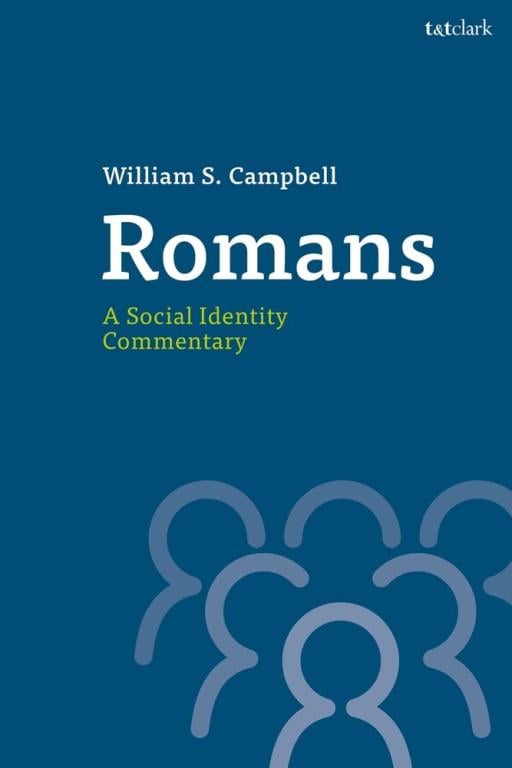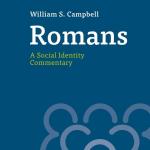Q. The catena of quotations in Rom. 15 includes the exhortation at the very outset to ‘welcome one another’ after the word ‘therefore’ and means surely there is a connection with what came before in Rom. 14. The phrase itself implies a group of people Paul is here addressing, indeed he is referring to two groups, just as we see in the following chapter Rom. 16. In light of the mention of both ‘the circumcision’ and Gentiles in what follows the natural way to take this is Paul is indeed NOT just speaking to Gentiles. No, he is speaking to Jews and Gentiles that are both part of the Christ followers in Rome but are not meeting together, and need to get on with being more unified, here step one is welcoming, step two will be made clear in Rom. 16 where Paul exhorts ‘greet X,Y, Z with every show of affection. And about whom is Paul saying should receive this greeting—- Jewish Christians in Rome like Priscilla and Aquila, and Andronicus and Junia etc. And then there is that word DIO. If Jews and Gentiles who are Christians (because Paul has no basis for addressing non-Christian Jews here in Romans) are both being addressed and told to welcome one another then retrospectively this favors the conclusion that Paul is addressing both Jewish and Gentile Christians in Rom. 14 as well, which is the more natural way to read Rom. 14. Christ is the servant of the Jews, and also of the Gentiles, since he is the messiah and savior for these two groups, not just to Jews or just to Gentiles (and by the way this comports with the historical Jesus’ actual mission to Jews almost exclusively during his ministry). He did not do his ministry just to confirm the promises to Abraham about being a light to the Gentiles. No, the Gospel itself is for the Jew first, and also the Gentile— an emphasis already in Rom. 1 and this is because both of them need it. I think we need to read Rom. 14 in light of the discussion of weak and strong in 1 Corinthians, where surely Paul is talking about Jewish with too many scruples about food and days, and the important point is while he agrees with the strong, he defends the weak because he sees the matter of food, days etc. as ‘adiaphora’ NOT a defining issue for either himself or other Jewish Christians or Gentiles. This is why he is mainly concerned with not violating the conscience of Jewish Christians who still observe such Mosaic practices. For them whatever cannot be done in good faith is sin for them, and no one should cause them to stumble. Paul says this because while he agrees with the strong that all food is a good gift from God and so not unclean or profane and why he encourages the Corinthians to eat whatever they find in the meat market without asking questions of conscience. This would not be the views of a regularly observant Jew. The point is—that is not who Paul is any more. The phrase ‘I can be the Jew to the Jew’ is very odd for a Jew to use, and I would say impossible if he is still rigorously keeping the Mosaic covenant day by day. How would you react to this?
A. I agree fully that the gospel is for the Jew first and also for the gentiles, but Paul in this letter draws out what this means in particular for the gentiles (e.g. chapters 2 and 7). This does not mean that for Paul the gospel has no implications for his fellow Jews. But the implications for Jews differ from those for gentiles in that the Jews are already recipients of God’s grace even whilst remaining unconvinced about messianic time. Nothing is clearer than that Paul differentiates Jews and gentiles in relation to the history of Israel and the covenant. Paul is convinced that Israel is still within God’s purpose but how and possibly when Israel will recognize what God is doing with the gentiles is not clarified. Even in chapter 11 with his positive claim that all Israel will be restored, his main emphasis is that this will only happen after the incoming of the gentiles.
You correctly note the ‘therefore’ that begins 15.7. It follows on from the prayerful exhortation to live together in harmony in accordance with Christ (15.6). Yes, there is a connection back to the previous discussion but mainly only to 15 1-6, and this is more like a bridging connection to a new section in 15.7-13,which sums up the crux of the discussion whilst beginning the conclusion of the entire letter (rather than being merely a continuation of the ‘weak’ and ‘strong’ disputes of chapter 14). I read 15.7-13 not just as a continuation of the call to welcome one another in 14.1 but as a widening of the call to accept one another expressed clearly in “with one voice to glorify the God and Father of our Lord Jesus Christ” (15.6). The glorifying of God is taken up again in 15.7b and I take this point to refer to a widening of the call to accept one another as extended to now include also the Jewish people (Commentary,384). These are introduced on to the scene as the first of the two peoples to whom Christ has become a servant i.e. “the circumcised” to confirm the promises, and secondly, “that the gentiles might glorify God for his mercy.” Paul puts emphasis on what he is about to say in v. 8 ff. “For I tell you”- has the force of a solemn pronouncement, meaning “pay very careful attention as this is important”. Here I see Paul as introducing four OT citations, not merely to back up his words, but to express in these his own thoughts. It could be that the I who will “confess your name among the gentiles” is the risen Christ himself , the root of Jesse (12b).Most important, however, is the call to “rejoice, O gentiles with his people.”(v.10). This is much more than a scriptural citation to stress the oneness of Jew and gentile in Christ, but serves here as an exhortation for gentiles to relate positively to Israel as God’s people. It is as if Paul is saying that the role of the Christ who was introduced into the conversation in 15.3 is to reconcile Jew and non-Jew in their participation in God’s ongoing purpose to the glory of God.
I differ from your reading of 14.1-15.6 in that I see this as addressed to groups of gentile Christ-followers in Rome, rather than to a mixed group of Jews and gentiles. The issues between such groups were not entirely different in that they would all experience problems concerning food sacrificed to Roman deities etc. But if Romans is addressed to gentiles alone, as I think the evidence confirms, then the “therefore” refers to groups of gentiles in Christ. Although there were both Jews and Jewish Christ-followers in Rome (though Paul does not here explicitly identify Jewish Christ-followers as such), but Paul has things to say to the gentiles that do not apply to the Jews such as “do not boast over the branches …remember, it is not you that bears the root , but the root you” (11.16). For this reason he had to address this long letter specifically to them, and what he says here in the OT citations is to direct their attention to their, i.e. gentile, relation to Israel for the glory of God, who has an interest in the outcome of this relation.
When Paul encounters Jews and meets a negative response to his message, even though they do not respond positively they still hear the news that messianic time has arrived, and what they do with it is out of his hands. But we do not have any examples of what Paul would have said to Jews about Christ, and to assume that it would be the same as what he says to gentiles is ignoring the differentiation that he makes between these throughout. The NT tells us many important things that we need to know but it also does not tell us everything and leaves us with some ‘mysteries’ to which clear answers are not provided. It seems that Paul thinks that the Roman gentiles wrongly assume that they know that they have replaced the Jews, ie they thought they knew more than they did, and Paul corrects them.














